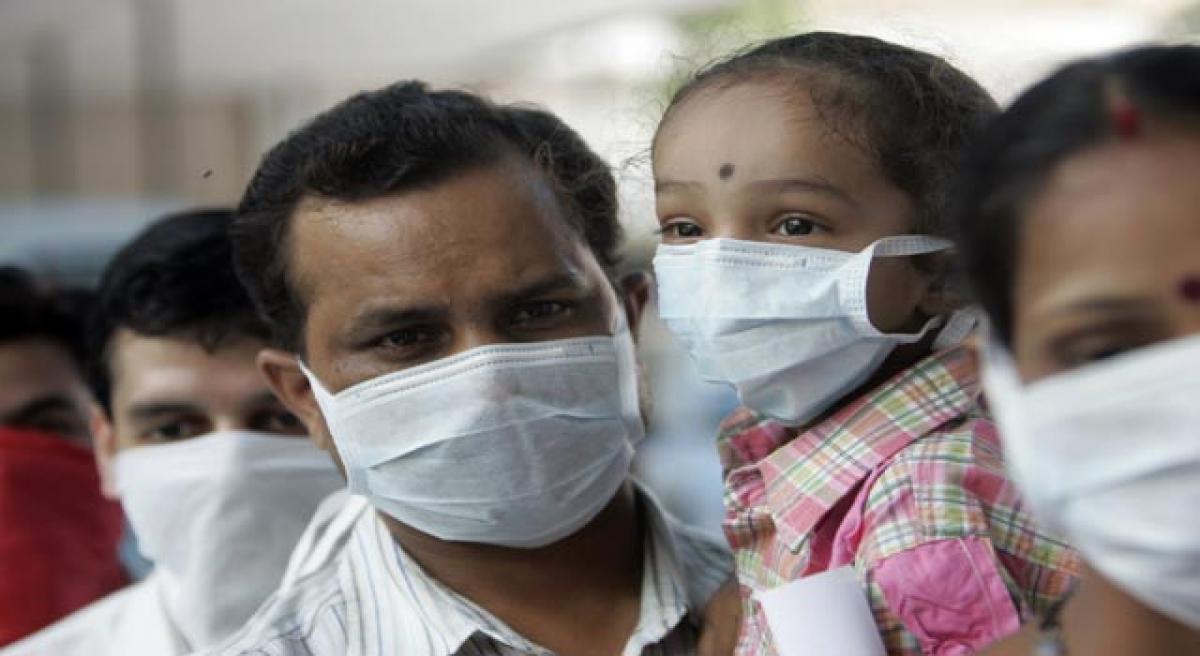All you need to know about Swine Flu!

It’s the year 2017 and swine flu has once again attacked India taking its toll on one city at a time. February 22 2017, the death toll due to swine flu has gone up to 16. In order to be safe, let us be informed about the various facets of swine flu.
Stay informed. Stay safe
It’s the year 2017 and swine flu has once again attacked India taking its toll on one city at a time. February 22 2017, the death toll due to swine flu has gone up to 16. In order to be safe, let us be informed about the various facets of swine flu.
What is Swine Flu?
Swine Flu is a human respiratory infection caused by an influenza strain that started in pigs. It is also called ‘pig influenza.’ The two viruses associated with swine flu are H1N1 and H3N2v. The symptoms of swine flu are very similar to that of general fever making it hard for people to differentiate between the two. The incubation period for this disease is one to four days and it usually lasts for three to seven days. The most serious complication associated with swine flu is pneumonia.
How is Swine Flu transmitted?
First of all, let’s clear the misconception associated to Swine Flu. Swine Flu is not caused due to the consumption of pork products. Swine Flu is transmitted from person to person by inhalation or ingestion of droplets containing the virus from people sneezing or coughing.
What are the symptoms of Swine Flu?
The various symptoms of swine flu include:
- Fever (100* C or above)
- Weakness and Body aches
- Sore Throat
- Chills
- Pain in the muscles
- Dry cough
- Running nose
- Sneezing
- Headache
- Decreased appetite
- Fatigue
- Diarrhoea
The doctor will suggest to run a few tests, if the patient shows symptoms of Swine flu. People with chronic medical conditions like asthma, chronic lung disease, heart disease, diabetes, suppressed immune systems, chemotherapy and kidney failure are always at a higher risk of falling prey to swine flu.
Self-care at home for swine flu
Drink plenty of liquids: Always stay hydrated. Keep drinking water, juice, soups, etc. Refrain from cold items.
Rest: Refrain from doing invigorating physical activities and take as much rest as possible in order to restore your immunity.
Maintain distance from people: Isolate yourself from the people around you. Refrain from greeting someone with a hug or a handshake.
Pay extra attention to hygiene: Wash your hands and face with soap once every hour and wash your hands properly after your meals.
Vaccinations for Swine Flu:
H1N1 influenza virus vaccine is used to prevent infection caused by the pandemic 2009 H1N1 influenza virus.
The antiviral drugs oseltamivir (Tamiflu) and zanamivir (Relenza) are sometimes prescribed within the first day or two of symptoms to reduce the
severity of your symptoms, and possibly the risk of complications.
In all probability, swine flu is heading closer to your city and help is just an app away.
Authored by Dr Gowri Kulkarni, MBBS, MRCGP (INT), (DNB - Psychiatry) listed under DocsApp.















